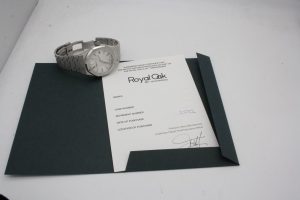The watch industry has been steeped in tradition and history for centuries. The meticulous craftsmanship and attention to detail that go into the making of each watch makes Swiss watches some of the most sought-after in the world. However, the industry is slow to adapt to new technologies, and the introduction of the latest technological advances is met with resistance.

One such technology that has been slow to be adopted in the watch industry is a decentralized, secure, and tamper-proof digital ledger that allows for the creation of smart contracts and the tracking of ownership and provenance. This technology offers many benefits to the watch industry, including improved transparency, increased security, and reduced costs.
However, the watch industry has been slow to adopt this technology, mainly for fear of disrupting the traditional and exclusive nature of the industry. The industry has long relied on established practices and relationships, and many in the industry see the introduction of new technology as a threat to these practices.

In addition, the industry is reluctant to adopt new technologies due to concerns about the potential impact on the perceived value and authenticity of watches. Many watchmakers fear that the digitization of the ownership and provenance of watches could facilitate the production of counterfeits or reduce the value of existing watches
Despite these fears, there are indications that the watch industry is slowly, albeit cautiously, embracing new technologies. Several luxury watch brands have begun to incorporate new technologies into their watches, such as digital displays and sensors in traditional mechanical watches. Not only this but with backing up their history of providence onto the decentralized ledger. The most recent example is Rolex beginning their project.
In summary, the watch industry’s resistance to modernization and adaptation to new technologies is understandable, given the industry’s reliance on tradition and best practices. However, the potential benefits of new technologies, such as increased transparency, improved safety, and lower costs, make it difficult for the industry to ignore these developments indefinitely. It will be interesting to see how the industry reconciles tradition with modernization and finds a balance that maintains the integrity and exclusivity of Swiss watches while embracing the benefits of new technologies.
What do you think? Will blockchain be able to disrupt tradition?


